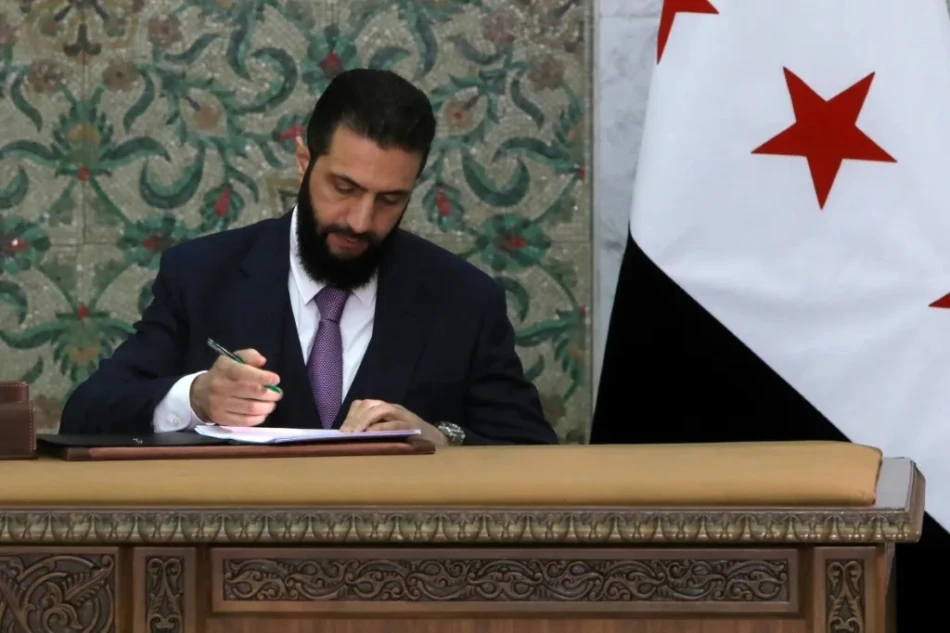
Damascus Brother's Office Shuttered, Luxury Vehicles Seized in Crackdown
Syria's new president Ahmed al-Sharaa confronted government officials over their luxury cars during an unannounced meeting, ordering those with expensive vehicles to hand over their keys or face corruption investigations. The move highlights the challenge of transitioning from rebel leadership to civilian governance without repeating the widespread corruption of Assad's police state.
The meeting took place on August 30 at al-Sharaa's former base in Idlib province, northwestern Syria. More than a hundred of his supporters showed up, many driving luxury SUVs including Cadillac Escalades, Range Rovers, and Chevrolet Tahoes.
Al-Sharaa, 43, didn't hold back his criticism. "I didn't know government salaries were this huge!" he joked, according to Reuters sources who attended the meeting. He then got serious with the officials and businessmen present: "Have you forgotten that you are sons of the revolution? Did the world tempt you this quickly?"
The president gave civil servants with luxury cars an ultimatum - hand over the keys or face investigations for suspected illegal gains. Two attendees and two other civil servants briefed on the meeting confirmed the details, all speaking anonymously. But here's the thing - only a few people actually handed over their keys before leaving the hall.
Al-Sharaa chose to hold this meeting away from his official Damascus office, sitting alongside two senior security officials. The location wasn't random - it was his old opposition stronghold, a reminder of where he came from.
Syrian sources see this confrontation as reflecting the biggest challenge facing the new president. He needs to shift from leading an armed rebellion to running a civilian government without falling into the same corruption trap that defined Assad's regime.
The stakes are high. Al-Sharaa built legitimacy among Syrians and internationally after overthrowing the dictator. Losing that credibility to corruption scandals could undermine his entire project of rebuilding Syria.
Syria's Information Ministry confirmed the meeting happened but called it a "friendly, informal" gathering. They said al-Sharaa discussed political and security challenges and the need to change the "investment culture established by the previous regime." The ministry stressed that the president won't tolerate any suspicion of corruption among state employees, but denied that anyone actually handed over car keys during the meeting.
For investors and regional governments watching Syria's transition, this incident signals both promise and risk. Al-Sharaa appears serious about fighting corruption, which could help attract international investment and aid. But the fact that most officials kept their keys suggests changing entrenched behaviors won't be easy.
Most Viewed News

 Sara Khaled
Sara Khaled






